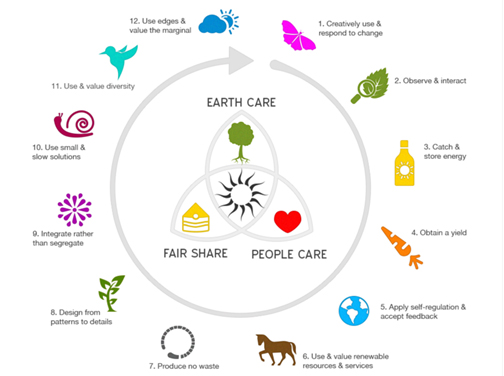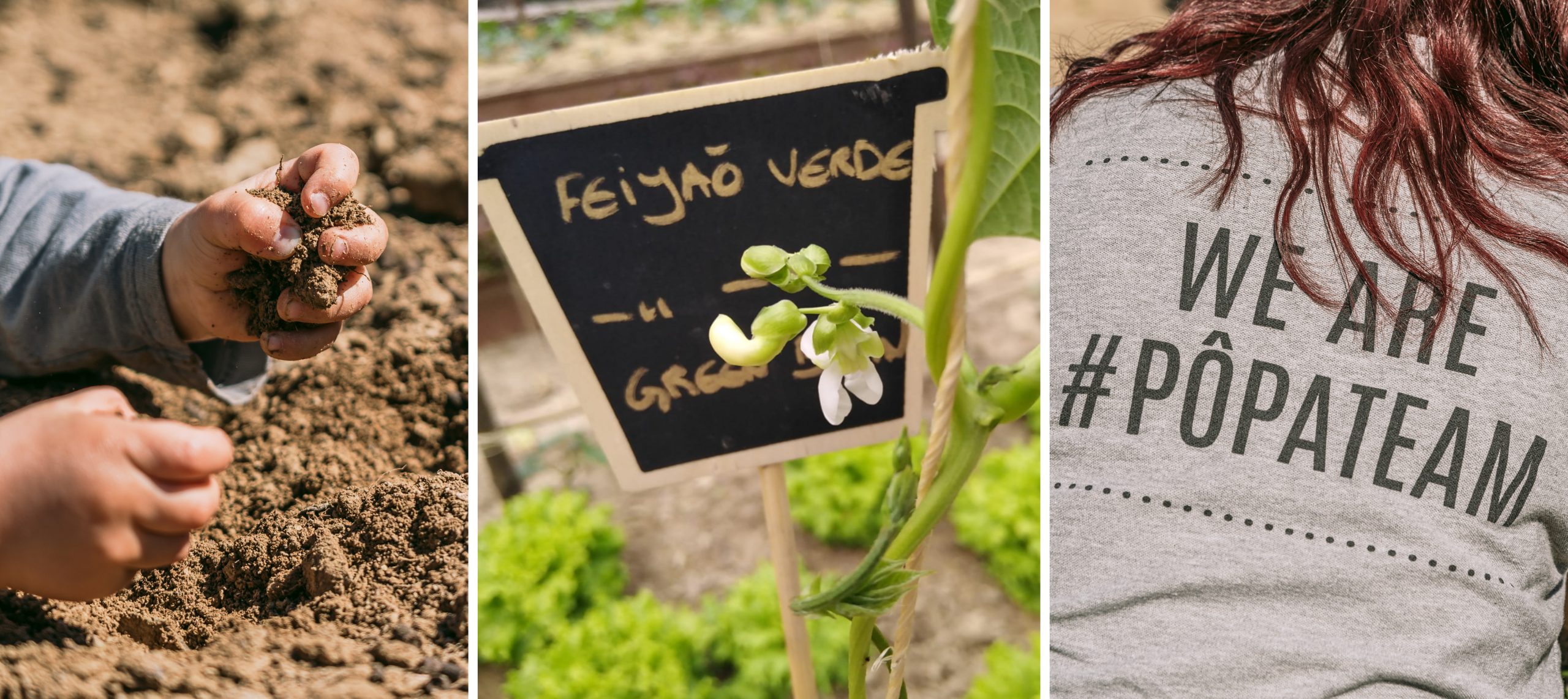
Sustainability – Permaculture
Sustainability – Permaculture
Permaculture in our garden & in our daily lives
The Pôpa team is known for its ambitious qualitative standards, knowing in advance that everything in nature needs time and respect. This awareness results in dedicating ourselves to social, human and environmental causes that allow us to contribute to a fairer, more developed future with better living conditions for future generations.
Cultivating part of our food and returning the biodiversity to our land, to our place, is a way of practising agroecology, opting for sustainable practices, and therefore conscious.
“the only truly ethical decision is for each one to take responsibility for their own existence and the existence of their children” (Mollison, 1990)
At its core, permaculture is a combination of the words and values of what is “permanent” and “(agri)culture”.
This approach was born in Australia in the 1970s by Bill Mollison and David Holmgren, as a tool to help design permanent, that is, autonomous, agricultural systems.
In a vegetable garden that follows permaculture techniques, the plants that grow there will be healthy and of great nutritional value. This form of cultivation has a holistic side that works in line with nature, using techniques that promote the well-being of plants and, consequently, ours!
And at this point, we find parallel practices with natural agriculture that were intentionally spread by the researches of the Japanese Masanobu Fukuoka, reaching the hands of the founders of permaculture and developed by them.

Over time, permaculture has branched out and established itself as a global movement with applicability not only in vegetable gardens, but also in the most diverse cultural practices that involve human interaction and intervention – including our homes, our daily lives and the community in general.
“it is in the ethical principles of permaculture that we summarize the values of our business and it is from these that we build resilience in the face of an uncertain future” Netos do Pôpa
—
Let’s start by mentioning the guiding ethical principles that are at the heart of Permaculture:
(1) care for the land (2) care for people (3) and fair distribution.
—
All three apply to the 12 principles that govern Permaculture,
adapting them to your environment and local circumstances:
1.Observe and interact;
2.Capture and store energy;
2.Get income;
4.Practice self-management and accept feedback;
5.Use and value renewable services and resources;
6.Do not produce waste;
7.Drawing/designing from patterns to get to the details;
8.Integrating instead of segregating;
9.Use small and slow solutions;
10.Use and value (bio)diversity;
11.Use the edges and value the marginal elements.
12.Use creativity and respond to change.

Keep on #pôpafriends:
Dream, Create and ALWAYS Celebrate!

Think global, act local 🌎
Date:
May 18, 2022



